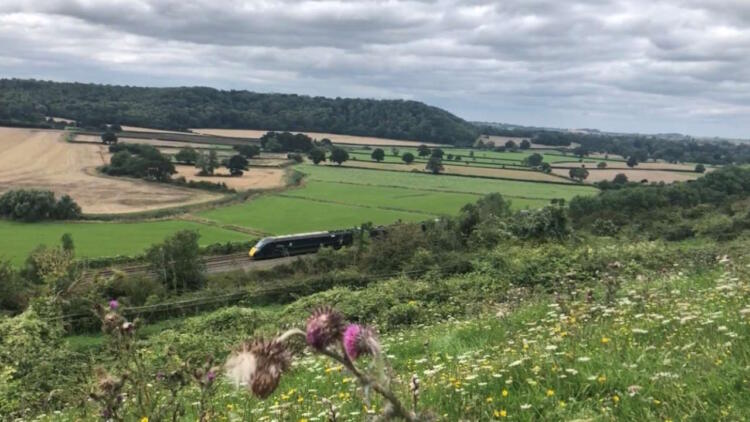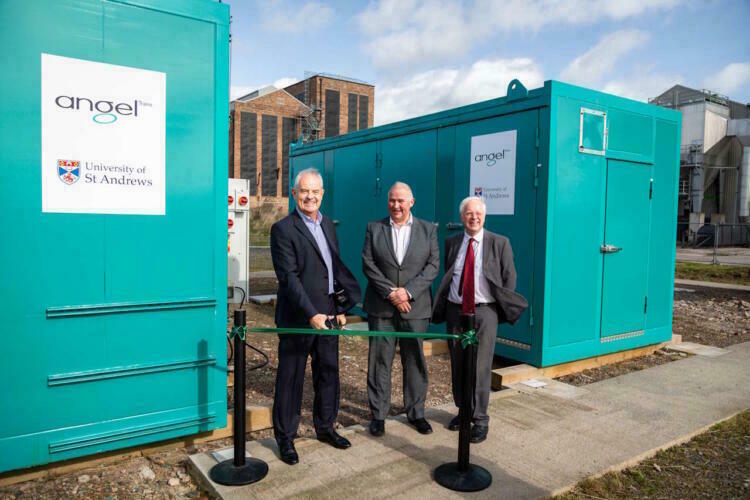Rail industry launches framework for environmental and social …
Today (Tuesday 14 November) the Rail Safety and Standards Board[1] (RSSB) has launched its Sustainable Rail Blueprint.
The Board intends that the Blueprint will provide a new framework to support Great Britain's rail industry to progress efficiently towards environmental and social sustainability.
Rail travel is the most sustainable mode of long-distance transport for both passengers and freight, and is responsible for just 1.4% of the UK's overall transport carbon emissions. Therefore, expanding rail and attracting more passengers and a major shift of freight from road to rail would make a major contribution to reducing emissions. However, it is also possible for the rail industry to become more environmentally and socially sustainable itself. helping to deliver ‘net zero' and improving its impact on the environment[2], local communities, and society.
The Department for Transport[3] identified the need for a cross-industry strategy in 2020, and provided funds to develop the Blueprint, which RSSB created in collaboration with various bodies within the rail industry. The result is a consensus document that offers a view of how rail can deliver better on environmental and social issues.
As the rail industry continues to adapt to changes in passenger and freight demands and changes in rail usage following the Covid pandemic, RSSB hopes that through its setting out of policy milestones and suggested initiatives, the Blueprint will inform debate and decisions on “options, affordability and practicality”, which suggests that it is acknowledging financial constraints on what it expects companies to do..
The document focuses on delivering government objectives on carbon reduction, better air quality, protecting and conserving biodiversity, resources and improving quality of life across the country.
The Blueprint includes:
- eleven sustainable rail topics: net zero carbon rail; clean air; a quieter railway; prepared for a changing climate; a railway for nature; zero waste; protect and conserve water; maximising social value; rail at the heart of communities; careers, economy and sustainable growth; and people-centred rail;
- six solutions: zero-carbon traction; seamless journeys; nature-based solutions; social value; data framework; and culture for sustainability;
- the role that train operating companies, infrastructure managers, rolling stock owners, the supply chain, government and regulators can play in delivering sustainable rail.
The RSSB reports that the industry is already working on implementing the Blueprint, with companies aligning their existing sustainability strategies and plans of work to fit the aims that the Blueprint sets out.
 Green Down nature reserve with GWR train on the Castle Cary line // Credit: Network Rail
Green Down nature reserve with GWR train on the Castle Cary line // Credit: Network Rail
The RSSB also reports that it is leading several programmes to “embed sustainability across the rail industry”, including:
- a data platform to measure and monitor sustainability performance;
- a learning hub to develop the industry's knowledge and capacity and integration of the Blueprint across the industry's business processes and contractual mechanisms;
- facilitating the industry's sustainable rail working groups, driving collective action across a range of technical topics.
Rail Minister Huw Merriman said, “As we look to achieve our net zero goals, this Government-commissioned blueprint will become a vital resource for the rail industry, providing clear guidance on what a sustainable railway for the future should look like.
“While significant progress has already been made in recent years, this report will further support the industry in reducing its environmental impact, using innovative techniques to make our rail network even greener, and ensuring the environment is at the heart of our decision making.”
 Pictured R – L Malcom Brown, CEO Angel Trains[4], Derek Watson, Quaestor and Factor of the University of St Andrews, Prof John Irvine // Credit: Angel Trains
Pictured R – L Malcom Brown, CEO Angel Trains[4], Derek Watson, Quaestor and Factor of the University of St Andrews, Prof John Irvine // Credit: Angel Trains
Malcolm Brown, CEO of rolling stock company Angel Trains and Chair of the Sustainable Rail Executive said, “The Sustainable Rail Blueprint is a solid example of what can be achieved through collaborative working across the GB rail industry, with a unified approach to delivering broad benefits for both the environment and society.
“The clear roadmaps set out within the Blueprint will help drive this ambitious programme forward and ensure we remain focused on affordability and practicality as we seek to make significant improvements to our operations as a whole.”
George Davies, RSSB Director of Sustainable Development said, “RSSB has led development of the Sustainable Rail Blueprint, co- creating it with the rail industry, for the rail industry. It's a practical resource to shape thinking and guide action across environmental and social issues, whilst recognising the pressures our industry is under currently.
“The Sustainable Rail Blueprint sets out what needs addressing, how it can be worked on and who needs to get involved. Reflecting legislation and policy along with what society expects, the Blueprint brings consistency to realise an even more sustainable railway.”
Elaine Seagriff, Programme Director, Strategy at the Great British Railways[5] Transition Team, said, “The rail industry has the opportunity to drive forward sustainability for Britain, not just by reducing the impact on the environment of moving people and goods but also in encouraging investment in and the development of new technologies. As such, we welcome the publication of the Sustainable Rail Blueprint, which is a key input to the long term Strategy for Rail.”
References
- ^ Posts tagged with Rail Safety and Standards Board (www.railadvent.co.uk)
- ^ Posts tagged with Environment (www.railadvent.co.uk)
- ^ Posts tagged with Department for Transport (www.railadvent.co.uk)
- ^ Posts tagged with Angel Trains (www.railadvent.co.uk)
- ^ Posts tagged with Great British Railways (www.railadvent.co.uk)